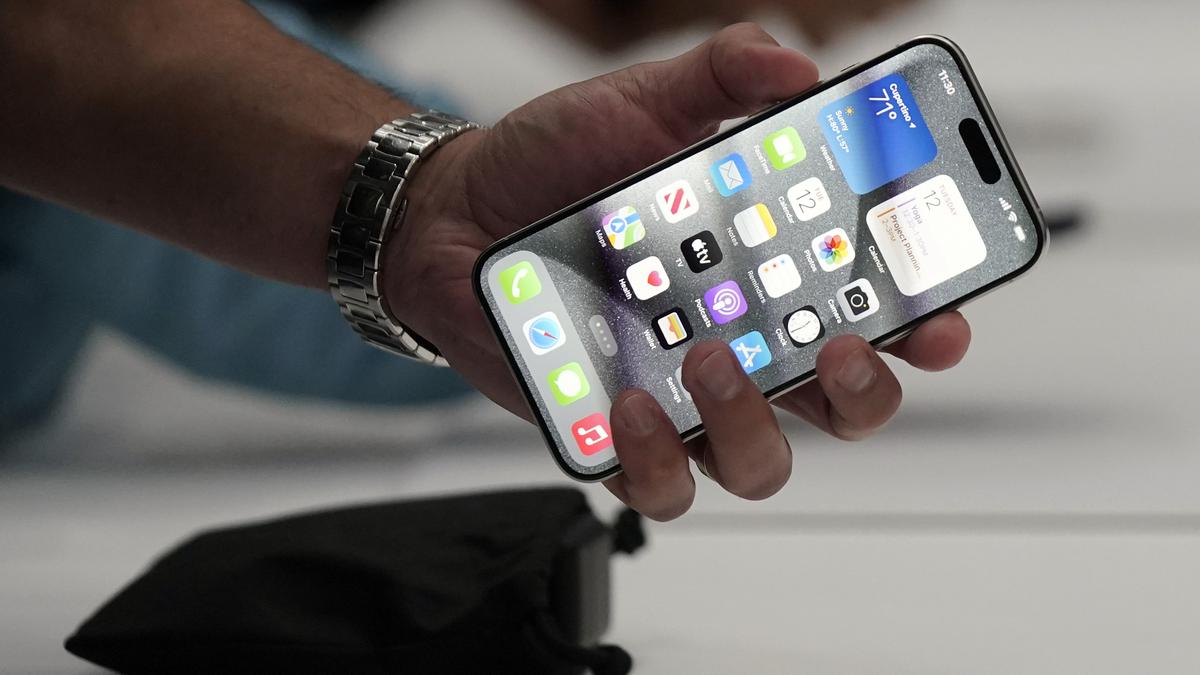Today’s Cache | Apple iPhone 16 Pro made in India
| Photo Credit: AP
(This article is part of Today’s Cache, The Hindu’s newsletter on emerging themes at the intersection of technology, innovation and policy. To get it in your inbox, subscribe here.)
Apple iPhone 16 Pro made in India
As Apple moves towards manufacturing more of its premium smartphones outside of China, the company is slated to begin assembling its iPhone 16 Pro models in India, per a report from GSM Arena. This will take place after the launch of the iPhone 16 line-up, with Foxconn India set to start producing the more high-end iPhone 16 Pro and iPhone 16 Pro Max models in its Indian facilities. Apple has been making some iPhones in India for around seven years now, but its share of the global iPhone production is small, at less than 15%.
At the same time, the figure is expected to go up to 25% by next year. GSM Arena also said that Apple could start producing the iPhone 17 in India on an exclusive basis. Apple is yet to formally confirm or deny the details.
SpaceX’s Starlink listings in India
SpaceX, founded by billionaire Elon Musk, sent a cease-and-desist notice to IndiaMART after learning of unauthorised listings of consumer terminals of the Starlink satellite internet system. The company confirmed the move in an email. SpaceX is still waiting for Global Mobile Personal Communication System (GMPCS) authorisation in India, but the listings on a B2B platform at this early stage raise worries about security risks or even illegally sourced equipment.
Michael Nicolls, Vice President of Starlink Engineering at SpaceX, told The Hindu that many fake resellers also claim to have Starlink products. Starlink terminals have been used extensively by Ukraine to fend off Russian forces in the ongoing war. However, there are concerns that Russia may have come to obtain the technology as well.
OpenAI offers customisation
ChatGPT-maker OpenAI offered its corporate users the option of using their own company data to customise its latest model: GPT-4o (where ‘o’ stands for Omni). The introduction of the new feature is significant as OpenAI is allowing fine-tuning and customisation of a flagship model in this instance, rather than a smaller one. This way, OpenAI is able to create more revenue streams, while companies can create models that are trained to answer specific questions or deal with niche areas.
Olivier Godement, head of product at OpenAI’s API, expressed hopes that the new feature will encourage corporate customers to make changes to its model by working with OpenAI instead of using a third party.

